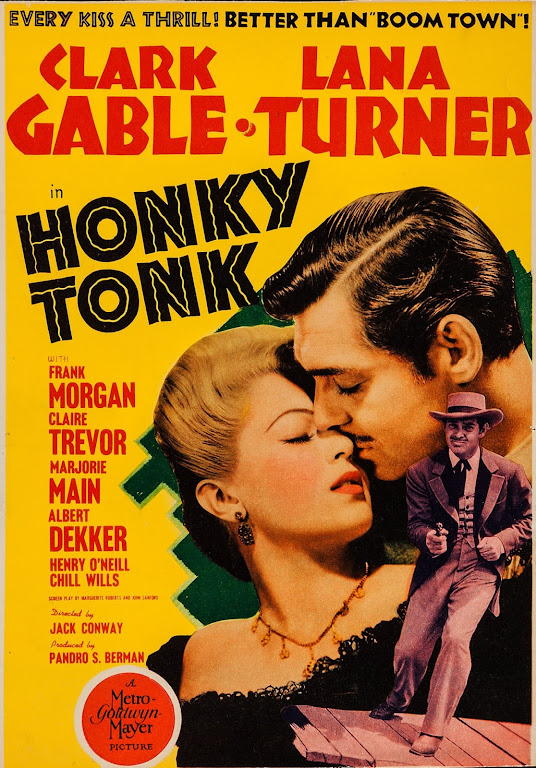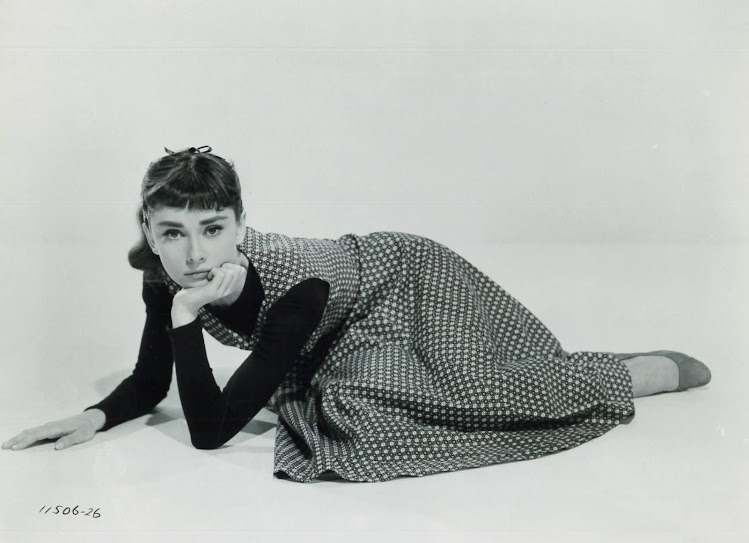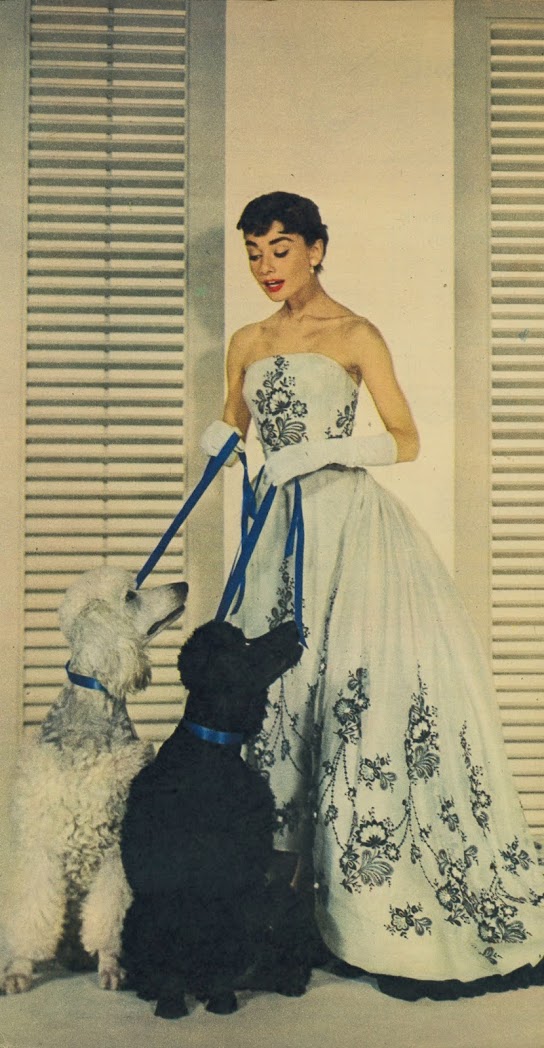Always Out To One-Up The Past
When Did Movies Stop Being "Better Than Ever!"?
Whatever our last attraction did, our next can do better, spew from studios always on alert for fresh money over/above what we spent with them a season before. Will Honky Tonk (1941) top Boom Town? That was for you to determine after paying to see one, then after twelve months, the next, which of course is promised to top the first. Same for 25 years later Thunderball, Here Comes The Biggest Bond Of All!, which had slight-more truth in advertising, for ads did not propose Thunderball as a “Best” of Bond, merely a “Biggest,” which it actually was, but who of us exiting cinemas in 1966 could/would say Thunderball surpassed Goldfinger? But forget Goldfinger, at least until it came back the following year with Dr. No. The Bonds had to swim like sharks or die, each poised to K.O. the last because to do otherwise might spell decline for the series. The Spy Who Loved Me had not spoke out of turn when declaring, It’s The Biggest. It’s The Best. It’s Bond. And Beyond. We were at least spared exclamation marks. This was by all account rebirth for 007, all knowing peril Bond faced for previous and pathetic two, The Man With The Golden Gun and Live and Let Die. I for one had sworn off the series, Golden Gun seen a first time in 1977 courtesy HBO on a tube small as a bread box, accommodation good as such refuse deserved. Not paying heed to modern marketing, I wouldn’t know if recent superheroes propose advance upon the last, assuming one can be distinguished from the other. None of such promotion is new. We were always assured that Movies Are Better Than Ever, question being, Did We Truly Believe It? Each innovation bespoke triumph to shade what went before: Talk, Width, Depth, idols but momentarily worshipped, the base question an eternal one: Had movies improved, or was there a point beyond which we could no longer be impressed?
Most think nickelodeons were dismal setting for first steps film made toward daylight that is cinema today. If theirs was wretched flicker, mute and overstated, why did millions jam into storefronts to watch? Best way to learn is by examining what a nickel bought in 1912. I tried two subjects, picked from random, The Voice of Conscience and In a Garden, both from Thanhouser, on You Tube and available on DVD. Neither are regarded special. I never heard of them before loading the disc. Must admit to quirk of mine that make these single-reel subjects so enjoyable … they are like fables a wise sage might tell if one has fifteen minutes to listen, glimpse on life, people, aspects of humanity that never change. Are we too far beyond such basics to pay heed? Fact they compel makes me wonder if movies overall are materially better than in 1912. But why start there: Name ones to surpass even earlier The Great Train Robbery or A Trip To The Moon, in their day or since. Here’s what nickel shows had that we since lost: Total immersion in action on the screen, the “hypnosis” effect Frank Woods wrote about. I pay rapt attention to The Voice of Conscience and In a Garden, never mind snacks brought along for accompany, these ignored in deference to drama onscreen. Any four folks in a frame will play out that many conflicts at once as viewer eyes dart from one to another, foreground to often deep background. 1912 cameras did not guide emphasis as in close-ups or edit to what we “should” notice, idiot-proof viewing not yet in place, duty ours to focus where it counts, interpret for ourselves where events are headed. I like demand that nickelodeon shorts make, and will not be convinced that initial audiences were anything but fully up to meeting each narrative challenge. Do stories end as expected? Sometimes maybe, as often not. Refreshing was this era before cliches were baked in. Pocket dramas throw me curves like nothing made afterward when films settled down to rote. I so often will say, “Are they really doing that?” and yes in most instance, they are.
Much would change in the name of progress. Nickelodeons did not last, as who needed nickels when there were dollars to be had? Purpose-built auditoriums saw to that, but it took longer movies to make a night out seem worthwhile. Tinkly keyboards gave way to orchestras. Dress was optional, but more and more you’d be noticed where not clad to expectation. Straight line from fish markets to the boxoffice were being erased. This was naked grab for a better class of patronage, and it worked. New York’s Strand opened in 1914, a features-only policy now that longer forms were embraced. Gone was day of plopping into five cent seats to while away an hour before struggle of life recommenced at home or on streets. Organized interests went seriously after serious money. Was more taken away than was giveth? Informality as nickelodeons knew it was among early casualties, more expected of Strand viewership than ones what ate peanuts and shucked shells as they watched. We had a steak house where this was part of lure … drop at leisure, we’ll clean your mess. Well, by mid-teens, theatres were all through being messy. Movies as big business looked to Broadway, a model close as any for what they sought to be. Trade-offs were applied, give this, take away that, and hope the loss would go unnoticed. Goal was to increase mass from a developing mass audience, to which add respectability a family trade implied. Freshness and fun, plus tickets a fraction of legit, made cold calculation easy to overlook, but had screen content improved? Certainly it was more polished. A 1915 exhibitor would no more run a 1909 subject than lie down in front of a streetcar. Discard of the old began here, clear decks, what was new was better just for being new.
“Classical Narrative” as guiding principal revved up films as they became more industrialized. Pretty soon you could chart movement/pace of movies like a railroad schedule. That was good to extent of assembly lines being good, so long as they got product out, which they had to for insatiable demand to be met, the movie habit becoming more habitual. Idea was less to make exceptional photoplays than to avoid ones that were really bad. Bland acceptance was the goal sought, drumbeat of movies always on an upswing, what went before buried to avoid honest comparison. I remember on the porch when my mother casual-said that movies were best, at least much better, around 1949, our conversation circa late-60’s. I took her words to heart and redoubled effort to see what 1949 offered, not so easy where black-and-white was ruthlessly pushed aside in favor of color to service everyone’s new home set. Again, the big broom. New is so often callous to old. They were already ridiculing nickelodeon shorts in the 20’s, with invite to laugh, almost insistence on it, whenever one surfaced as novelty or for jeering purpose. This is part-why so little survives. Why preserve a thing to be spat at? Worse was talkie arrival to plunge whole of prior achievement down skunk holes. Talk about transition … this was tear-down of what was past to greet an all too uncertain future.
And how those early talkies got a bum’s rush once kinks were ironed out! I checked a Blu-Ray of 1929-30 Our Gang shorts. Frightful. How did anyone watch Small Talk, let alone over and over, when Channel 3-Charlotte had it on a 60’s loop? But we were taught to respect elders, including those captured on film in dawn day of sound. A lot of favorites in the late 20’s were no longer favorites once they talked. So much of what went down was unutterably cruel. Imagine how John Gilbert felt once ice was under him. Patrons were encouraged to discard much of what they once loved. Silents were for saps, or those unreasonable enough to still want them. Many declared movies to have truly arrived with talk. Now they would compete with the stage on fully equal terms. Such was Hollywood’s economic mastery that they stole actors from Broadway with impunity. You now could argue that Movies Are Better Than Ever and be believed across boards. No one who wanted to stay in the business could plead otherwise. Whatever of an audience thought outside this box, or microphone, could satisfy mute preference elsewhere, maybe sit home staring at their radio without turning it on. Here was revolution everybody had waited for. Radio, public address, and long-since telephones made film with talk overdue, a vast improvement over everything that had gone before. Let silence go meekly out … we would not be bothered by it again.
Lay a 1931 release beside one from 1939. The difference is astonishing, like a steam engine beside the Super Chief. I asked Conrad Lane if he knew a year wherein movies really seemed better than ever. He said that for him, 1939 came a closest. Things like The Wizard of Oz, Gunga Din, and especially Gone With The Wind, suggested a whole new game, or art form, was afoot. GWTW was, for his generation, filmgoing at a new summit. If there had ever been anything finer, then show us, all of 30’s to that point mere growth years, a reach for levels Hollywood now could grasp. Polish alone seemed to bear this out. Warners tried recapture of 1954's reissue success of Little Caesar with The Public Enemy (both from 1931) by test ballooning The Roaring Twenties with Smart Money (1939 and 1931 respectively). The latter pair failed, and I wonder if that was due to contrast so alarming, The Roaring Twenties a chrome-plate model of formula efficiency, Smart Money a hopeless creak made so by mere eight years that had passed between it and The Roaring Twenties. Movies, especially “A” ones, had taken on a soulless sheen, perfection something audiences presumably wanted … until they got it. Wine too fine can be indigestible. An All This and Heaven Too or 1940's Waterloo Bridge told stories pre-coders might have woven in half the time with twice as much verve. Can too high gloss blind? Hollywood output was better only in a surface sense, “production values” well-named for giving what seemed a greater value for our admission dollar. To be overproduced was often an asset. You’d not reserve a seat for less than a leviathan to look at. Being respected became preferable to being enjoyed. Crowds trance-walking out of For Whom The Bell Tolls were less banqueted than bludgeoned. If this was movies being better, what would a future bring?
Collector/historian Marty Kearns used to cart 16mm prints to old folk homes during the 70/80’s where he would set up a screen and give shows he thought residents would enjoy. Being as how seniors, and a lot of others, carp always that movies aren’t as good as they used to be, Marty figured they would want 30/40’s fare. No, they chose 50’s, not so long ago at the time and in fact more a coming-of-age era for Marty than for elder crowd he played to. Proof again that lots don’t like film to go back too far even in their own lifetime (cue my mother’s dismiss of Gone With The Wind after taking me to the ’68 reissue). Conrad tells of residents to a man/woman in his retirement facility saying movies were not like they used to be, but would they necessarily want to re-watch movies they used to watch? Seems everyone that lived since 1900 got around to declaring that films aren't what they were. Guess this comes under umbrella of ultra-stating the obvious, but who wants movies, or any aspect of life, to stay a rigid same? (Don’t answer, no doubt lots do, including me sometimes). I’ll opt for status quo in terms of keeping alive, and past that, minor accommodations like continued electricity and Internet not fritzing out.
With war’s end came a year (1946) where grosses, if not quality, set a higher than ever bar. Trouble was sensed by those that knew returned service personnel had things on their mind other than going to shows. Gilbert Seldes said we’d grow out of films by age 20 --- it had always been that way --- by the late 40’s, you’d think everybody had just turned 20. An experience for Conrad summed things up so far as illusion of movies improving, let alone being best-ever. He went to see Whispering Smith in early ’49, was put way off by plummet from standards earlier set, distance since fine westerns like Dodge City, Stagecoach, and Jesse James a yawning chasm despite only ten years gone. So concerned was Conrad that he wrote an article detailing the malaise, submitted it to Collier’s, but how many mags, especially those reliant on industry ads, bit hands that fed them? Much rode on what age you were when movies became meaningful. Chances are a boy turning twelve in 1948-49 found Whispering Smith plenty swell, as what did he know from Dodge City? Conrad by then was eighteen, sensed movies headed down, rather than up, slopes. Hope sprang eternal, however. He’d not be one of those who dropped films in favor of other recreations. Conrad cheer-led for This Is Cinerama, inveigled friends to join him on four at-least occasions when he saw it in Frisco. If “Better” was defined on wow factor alone, then Cinerama was the show to beat, even if it was less movie than circus attraction. The studios tried getting in front of 50’s slump by allied flag-raise of “Movies Are Better Than Ever,” joint millions spent to put across that doubtful message, at least to counter conviction that no, they were actually worse than ever. Either way, most of whoever went in good old days weren’t going anymore, movies, if an urge, one to be satisfied on new-acquired TV’s.
Did anyone exit Bwana Devil with renewed hope for movies? Cinemascope and stereo were a jolt to senses, but Fox rental figures at record highs from late 1953 and through ’54 gave way to ice formed by 1955. Few kidded themselves that films would do more than tread water, if that. Old movies were showing up on television to show up new movies. Great films were referred to in past tense. Attitude adjustment came in spades that was nostalgia for how we were entertained better back in respective day. Local channels said outright that Movies Were Worser Than Ever, Chicago’s WGN initiating a long-run series (1975-1985) frankly called “When Movies Were Movies,” as in they really were not anymore. Shifts in style with the 60’s, deepening in the 70’s, alienated many accustomed to sameness. For them, oldness was comforting, younger folk caring less if movies swam or sunk. Priorities were changed, and who could you blame for that? Seemed my own peer group was more into rock concerts or hemp harvesting. Friend at college: Hey John, want me to pick you up a dime bag on the frat hall upstairs? Me: Heck no, Roy. $10 is 7.69% of $130 I need for a bootleg Black Cat on 16mm!” So really, who was the odd duck here? Certainly not Roy. Whether movies were better than ever was no longer a point worth debating, for who felt strongly either way? Anyone who loved film carved out their own preferred era and stayed within it. For me, it was silent, or 30/40’s. By the 80’s, I sort of let in the 50’s, the 60’s barely OK because I had seen a number of those first-run. Hard to recall a last time watching anything from the 80’s, and whatever has been revisited after that, well, I forget. In the end, it is all so personal, and who can be expected to defend a stance based upon that?

















































